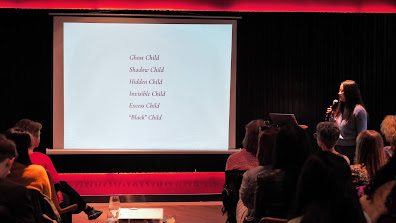More Than One Child: Memoirs of an Illegal Daughter (Balestier, 2021) is Shen Yang’s story of growing up as an ‘excess-birth’ or ‘illegal’ child. She was born as a second daughter during the years of China’s one-child-per family policy (1980s to 2015). Although the policy was strictly enforced, a traditional preference for boys meant that families determined to produce a son and heir, often tried for more than one pregnancy. Baby girls were often aborted, abandoned, or adopted overseas. However, numerous second, third, and even fourth daughters survived, and grew up to suffer the consequences of their illegal status.
Shen Yang does not legally exist. Her official ID is still the fake document obtained so that she could attend school, by the aunt and uncle who fostered her.
There is very little literature documenting the experiences of ‘illegals’ like Shen Yang. As a result, those who can read English (Shen Yang’s book has not yet been published in Chinese) are surprised, and often shaken, to find themselves and their lives reflected in her book. Shen Yang told me yesterday how the audience reacted at the launch of More Than One Child at the Royal Asiatic Society in Shanghai.
She writes: ‘The audience was hooked by my speech from the beginning to the very end, and some even cried. One girl in the front cried twice, which distracted me a bit and I almost forgot my lines. She was also an excess-birth child who had been adopted away from her family. I managed to give her a huge hug after the event. It was very moving. Then later another girl approached me, and told me she was also adopted. She makes documentaries now, and she wants to make a documentary with me about excess-birth children.’
This is not the first time that Shen Yang’s book has put her in contact with other excess-birth children. On 11th October 2021, she received this e-mail: ‘Hi Shen Yang, so glad I found you and your book! I was an excess-birth child too. I have been processing my emotions and making sense of what happened to me for several years – I wrote an essay back in 2015 as my ‘coming out' to the world as a hidden child in my family. About your book, I already found a lot of similarities when I read the first three chapters. I have a podcast in Chinese, would you be my guest? I would love to do an episode with you to share your story to Chinese audience. In my first episode, I interviewed my mother about her birth experiences. She gave birth to three children and was forced to have an abortion when she was eight months pregnant after she had me. I really appreciate your work and how you are telling our stories to the world!’
Later in October, an artist who was also born as an excess-birth child in the 80s in Shandong (the same province as Shen Yang) contacted her after reading More Than One Child. As an illegal second daughter, she used to hide in the cupboard whenever family planning officers or strangers came to their house. And that set the tone of her entire life: she became fearful and insecure. As she grew up, these feelings lingered and she questioned the meaning of her existence. Finally, years later, she found a way of expressing her feelings: on her 30th birthday, she held an exhibition in Beijing called ‘Outside the Plan’, which was her way of saying farewell to a childhood spent in hiding.
These heartfelt stories show how a book can make a difference. Shen Yang finishes: ‘I hope that more and more invisible children, encouraged by my story, will be brave enough to stand up and make their voices heard.’
……………………………………………….
More about the book:
Shen Yang and Roseann Lake: https://www.wordswithoutborders.org/dispatches/article/telling-the-stories-of-chinas-illegal-children-shen-yang-and-roseann-lake-i
And an article by Nicky Harman: https://booksandbao.com/essential-nonfiction-books-about-china/


